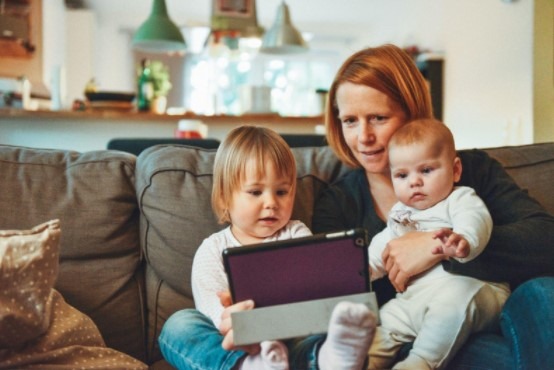No one knows when accidents would happen. That’s why children should be taught how to handle themselves properly during an emergency situation at home. As you won’t always be watching them or be by their side, they should have knowledge about what they can do in case something gets amiss.
Identifying potential risks at home and making sure the kids understand them is already a big help in making them and your family prepared for emergencies. Additionally, teaching them about what they can do in such situations helps ensure their safety. Here are eight home security basics that you need to teach your children for your peace of mind in case they are left alone at home.

1. Familiarity with the family’s emergency contact list.
Each household should create an emergency contact list, which should be written or printed. This list should then be placed in an area where it’s visible to all, even small kids. Have those numbers displayed on your fridge or hang them in your family room so kids can easily see them in case of an emergency. It’s also important that they know how to use a telephone and recognise an emergency situation so they know when to call.
2. Operating your alarm or home security system.
Even if you have installed the necessary home security system, if your kids don’t know how to use them, it’s useless. It can even cause you to look for an emergency locksmith if they get themselves locked out of the home.
Kids should be trained on how to properly use your home security system. They should know how to sound the alarm, how to get themselves in and what to press in case of emergency. Show them how it works. They should also be asked not to share your house security codes or information with anyone.
3. Keeping the doors and windows closed and locked.
Locking up doors and windows should be second nature to any member of the family. If you and your kids won’t make this a habit, you are giving burglars an easy entry into your house.
According to the Australian Bureau of Statistics, it takes only 5 minutes for 75% of burglars to enter a property. Sometimes that’s just a window left opened or a door unlocked. In 2018-2019, about 2.4% of Australian households experienced a break-in. You wouldn’t want this to happen to your home. So the next time you leave the house with the kids, even if you’re in a hurry, teach them to check all doors and windows. Let them know the safety threats posed when you leave any of them unlatched.
4. Not to open doors to strangers.
Kids should also learn never to open the doors if they don’t know who is out there. If you have a security camera let them see first who’s at the door before opening it. If you have none, you can consider installing a peephole so they can see the person on the other side of the door without opening it.
5. Never to receive anything from people they don’t know.
Kids are vulnerable when they are alone. That’s why you should make them understand the stranger danger, that they should not trust anyone whom they don’t know. More so, they should not receive anything from them. People with bad intention may try to lure your kids by giving them gifts. Teach them to politely refuse any offer if that happens to them.
6. No sharing of personal information online.
Kids should also be educated about online security. They should never give out any personal information to anybody when using the Internet. Whether it’s your planned weekend vacation or your security code, they should learn to keep it to themselves. When this information reaches a burglar, your house can be an easy target, and other unwanted issues may occur.
7. Friends should be invited only with the consent of parents or guardians.
It should be a rule in the house to first ask permission before inviting someone for a meal or a sleepover. This is not just to know how much food you should prepare but also to help you arrange your schedule. You wouldn’t know what can happen when you leave your kids alone with their peers. They might even introduce your kids to vices or bad behaviour under your roof. If you know that friends are visiting and you’re at home, you get to know their friends and see if they are a good influence on your kids.
8. Staying away from dangerous products at home.
Kids are prone to injuries. Unfortunately, many products at home can hurt them, especially when you’re not there to supervise them. With their natural curiosity, they may hurt themselves with the knife in your kitchen or bleaching products in your laundry area. They love playing with things they are not supposed to touch. So make sure they know what’s off-limits inside the house. Teach them about the things they can and cannot touch at home. In this way, they will learn how to behave responsibly while you’re away.
Kids should learn basic home safety rules. These are just some of them. Make sure your kids are well aware of how they can help in keeping your home safe. Let it be a family matter.
I’m a 20-something stay-at-home mother and wife. I have an amazing husband, a beautiful daughter, two loving dogs, and a lazy cat. I wouldn’t change my life for anything! I love to read, listen to music, cook and blog!

Speak Your Mind